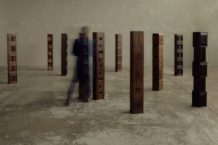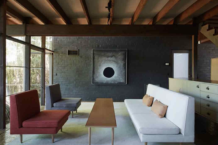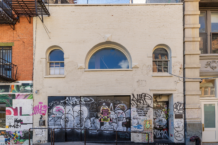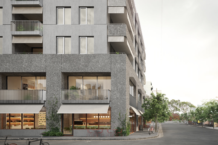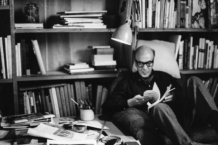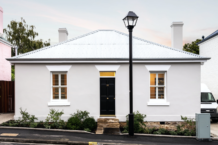The Politics of Public Space (V2) | OFFICE
Arts & Events, Books - by Open Journal
19th August, 2020.
Over three years, OFFICE has curated a public lecture series titled The Politics of Public Space, inviting speakers to present in civic spaces around Melbourne. Holding the series outside the conventional institutions allowed them to curate discussions that sat within, and concerned, the city’s forms and the issues at stake in their development. To preserve and disseminate these events, OFFICE has compiled a quarterly publication that also documents the circumstances that have shaped Melbourne over this period.
In March 2020, OFFICE cut short the third lecture series in light of the COVID-19 outbreak. While the effects of the virus and subsequent restrictions in Australia were not as consequential as other countries, holding lectures in physical public spaces became impossible. As many public institutions and communities moved online, the question was posed, can we view these digital spaces as an extension of public space? And what implications does this have on our interaction with the material city?

The second volume in the publication series asks how COVID has altered the way we occupy material and digital space. It draws on a range of professionals around the world to unpack their understanding and reinterpretation of politics and public space in response to this pandemic. For many people, the lockdowns forced a retreat from public space. It’s here in our homes, away from the chaos of politics, that some of us find we are fortunate enough to reflect on these broader structures. These questions were the basis of the second volume interviews, but they also give a sense of optimism for the future.
Looking forward, the crucial question is: what will remain following this pandemic? The economic recovery implies a need to restore many of the structures that shaped the recent past. It is critical for interventions to challenge any process of restoration. What structures should be abstracted? Reconfigured? Repurposed? And how can creative practices intervene? Is inaction and refusal essential for change? And can digital communities translate into physical movements?

This publication, recently released on the 1st of August, curates a series of global perspectives as we all come to terms with a new way of life as a result of the virus. Myria Georgiou observes the emergence of digital solidarity groups throughout the UK as inequalities and vulnerabilities are foregrounded. World-renowned sociologist Saskia Sassen reveals the pervasiveness of power as the fragility of our global connectedness is further disclosed. The true publicness of our cities is revealed in Jack Self’s account of protest and opposition to the political structures. Brooke Holmes depicts an interconnectedness between the health of the city and it’s citizens traced back to antiquity. Australian artist Ian Strange unpacks his understanding of the home as he recounts a decade of practice into the subject. And Venezuelan architect Alfredo Brillembourg calls to arms the architecture profession to deal directly with issues of injustice within the built environment.
The book can be purchased directly through the OFFICE store.
This text originally formed a media release compiled by OFFICE.

